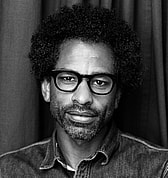Editor’s note: The following article is an op-ed, and the views expressed are the author’s own. Read more opinions on theGrio.
Keke Palmer is a star. Her performance in “Nope” shows once again her ability to command the screen, to deliver a nuanced performance, to be funny, charming, and fearful – yet still powerful. That performance has led to a debate about Palmer, her career and colorism. However, that conversation is totally misguided because it’s far too small.
Black social media wants to put Palmer’s career beside Zendaya’s and say: “See, here’s proof of colorism.” Zendaya is, like Palmer, an extraordinary actress who was a child star. But when we try to prove the existence of racism by looking at small pieces of society — by comparing one life to another life — we can easily get lost.
Yes, Palmer is darker than Zendaya, and yes Zendaya is super hot nowadays on the strength of “Euphoria” and the Spiderman films and “Dune.” But one could also say Palmer has succeeded far more than many light-skinned actresses. Does that mean colorism doesn’t exist? Of course not. Several extraordinary darker-skinned actors are major stars now, like Viola Davis, Daniel Kaluuya, Lupita Nyong’o and Don Cheadle. Does their success mean colorism is over? Of course not.

When we talk about racism and colorism we need a wide lens. Don’t look at one or two lives — look at a large swath of people and the impact on the masses. We need to stay focused on systems that produce injustice for millions of people rather than comparing one life to another. In general, if we look at the careers of thousands of actors over time, of course, it’s easier for white actors to get work than it is for light-skinned Black actors and it’s easier for most of those light-skinned Black actors to get work than it is for most darker-skinned Black actors.
We know that colorism is deeply ingrained in white audiences and Hollywood gatekeepers. We know they believe that Black people grow more attractive the closer they get to whiteness. What we may not want to admit is that colorism lives inside many of us, too.
Many Black people, consciously or unconsciously, find lighter-skinned Black people more attractive. This is a form of internalized racism that is difficult to escape after years of living in white supremacy and being inundated with messages about what’s attractive. Beauty is socially-constructed, and we live in a world that’s constantly telling us that lighter skin is more attractive.
I don’t need to see Palmer’s resume beside Zendaya’s to know that Palmer is a beast for having succeeded despite all that.
But Palmer’s success in “Nope” should not lead to us saying she should be this or would be that if she were lighter. That’s not a mindset that moves us forward. What moves us forward is this: seizing power. Palmer was cast in “Nope” partly because director Jordan Peele loves spotlighting darker-skinned actors and he knows how to light them and how to shoot their skin to make it look amazing.
We need more Black directors and producers who can put more darker-skinned Black people in leading roles. Peele’s work is a direct assault on colorism — you can’t look at his films and not say, “Damn, dark skin looks beautiful.” We need more filmmakers and artists sending out that message.

Touré is a host and Creative Director at theGrio. He is the host of the podcast “Toure Show” and the podcast docuseries “Who Was Prince?” He is also the author of seven books including the Prince biography Nothing Compares 2 U. Look out for his upcoming podcast Being Black In the 80s.
TheGrio is FREE on your TV via Apple TV, Amazon Fire, Roku, and Android TV. Please download theGrio mobile apps today!


